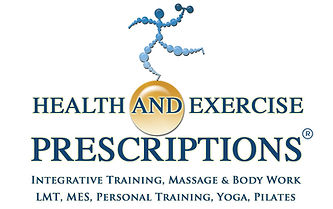Do you take the right supplements to optimize your performance in your sport? Click this link to go to the best in the industry. Supplements are easily adsorbed by your body rather than whole food because they are already broken down and can empty your digestive system quicker which is optimum for playing sports. The rest of your diet should be whole foods.
"If you are going to train like an athlete you better eat like one too"
Pre, post and during exercise fuel consumption is based off of factors that determine fuel usage. While exercising, you are burning Carbohydrates, Protein and Fat at different rates based upon the energy (intensity of exercise) system being used; So you would have to replete those depleted nutrients to avoid breaking down and experiencing a shortage of fuel and building blocks, keeping your body in an anabolic (growth) state rather than a catabolic (breakdown) state.
What does that mean exactly?
Your body has several energy systems and each works at varying times based off of the intensity of the activity being performed. We are measuring activity intensity based upon your heart rate.
For example, if you are doing an activity that only requires 60%- 70% max of your estimated heart rate then you are going to be burning approximately 50% of your energy from the glycogen stores in your muscles. But, if you where training at 80%-90% of your estimated max heart rate, then you would be using 90% of your glycogen stores from your muscles as your primary energy. You have around 2,000 calories of glycogen energy reserve in your muscles which is used more when your heart rate is between 60-90% of your maximum heart rate and about 70,000 calories of fat stores can be used efficiently when your heart rate is 60% of maximum and below.
Fat being burned is limited at intensities over 70%-80% maximum heart rate because there is not enough oxygen and fuel that can be made quickly enough to meet the demands of your body, so muscle glycogen will be broken anaerobically (without air) to meet the body's needs.
As you use the glycogen in your muscle stores it needs to be replenished by carbohydrates. Athletes that exercise over 90 minutes need more carbohydrates to replete the glycogen stores used during exercise.
The three main energy systems
Aerobic (energy created with oxygen) Examples: Tri/Bi athletes, distance running, cross country skiing, cycling, ultra endurance athletes
Anaerobic (energy created w/o oxygen) Examples: football, hockey, shot put, triple jump
Combination aerobic and anaerobic Examples: soccer, basketball, tennis, explosive and endurance needed events
Here is an example of general recommendations for a 160lb person who is playing football as their sport. Football is considered an anaerobic sport.
Pre-exercise: consume 109 grams of carbohydrates 2 hours prior, 16oz of water w/ meal, 16oz w/creatine and meal replacement 1-1.5 hour prior to event, sip Gatorade until game time.
During exercise: Sip on Gatorade
Post exercise: 8oz of Gatorade 15min. for next two hours. Consume 109 grams=436 calories of carbohydrates 16oz water w/creatine, glutamine and nutrient rich carb/protein blend within 30 minutes of activity.Take multivitamin and antioxidant vitamin, 20oz of water for every pound lost. Consume 109 grams=436 calories of carbohydrates every two hours till you go to bed.
This is a general supplement recommendation put together as an example for an anaerobic athlete that weighs 160lbs. It does not include the person's daily calories. That would be based off of age, gender and weight + activity calories which results in the Net Calories to maintain weight.
If you have any questions or need help creating a sport specific nutrition program to help you make a transformation contact me.
Jaime Hernandez
Bellingham WA, 98226
Health and Exercise Prescriptions®


